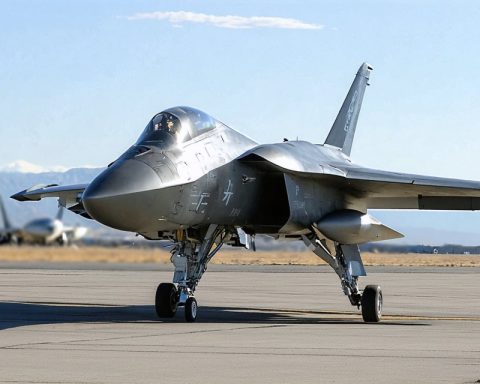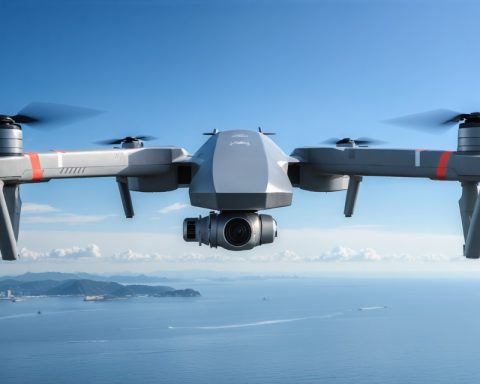The U.S. State Department has greenlighted a significant military support package for Argentina, enhancing its air defense arsenal with crucial equipment and services for its newly acquired F-16 fighter jets. The Defense Security Cooperation Agency (DSCA) has confirmed Congressional certification for this transaction, which is valued at approximately $941 million. This initiative aims to bolster Argentina’s aerial warfare capabilities substantially.
In early 2024, Argentina secured 24 F-16 jets through a third-party deal with Denmark. To support these aircraft, the country has requested a comprehensive package that includes 36 AIM-120 C-8 missiles, guidance sections, a variety of bombs including 102 MK-82s, and essential control equipment for precision targeting.
Beyond munitions, the package offers advanced mission planning systems, cryptographic devices, and ground support tools such as the Link-16 communication system. Additional components include avionics support, spare parts, as well as both classified and unclassified software. To ensure operational efficiency, Argentina will also receive extensive training programs and equipment to integrate these systems effectively.
This procurement deal, articulated by Argentine Defense Minister Luis Alfonso Petri, marks the nation’s largest investment in aerospace defense in over 40 years. Argentina’s Air Force has previously considered alternative aircraft options from Russia, China, and France, but none came to fruition. The F-16 acquisition is a pivotal move, addressing the needs of the aging fighter fleet and reshaping the country’s defense strategy.
The Sky’s the Limit: Argentina’s F-16 Acquisition Could Change Latin America’s Defense Landscape
Introduction
Argentina’s landmark decision to acquire F-16 fighter jets from Denmark has sparked a revitalization in the South American nation’s defense posture. But what wasn’t initially mentioned is the broader implications this deal holds for not just Argentina, but the entire Latin American region. As the country ushers in a new era of military capability, this move has introduced both opportunities and challenges that could reshape geopolitical dynamics.
Impacts on Regional Security
The introduction of advanced F-16 fighter jets into Argentina’s arsenal elevates the country’s standing in military capabilities within Latin America. Other countries in the region, which may have previously viewed Argentina as militarily underpowered, may now reconsider their own defense priorities. This could lead to an arms race, as neighboring countries might seek to bolster their own defense systems to maintain regional equilibrium.
For Argentina, enhanced defense capabilities mean greater national security and a stronger deterrent against potential threats. However, for smaller nations in the region, this could present a disadvantage if they lack the resources to upgrade their own defense systems at an equal pace.
Economic Implications for Argentina
While the $941 million investment in the F-16s marks a significant financial commitment, it brings potential economic benefits. The acquisition will likely stimulate job creation in sectors related to defense technology, maintenance, and support. It could also pave the way for technological partnerships and collaborations with other countries experienced with the F-16 platform.
On the downside, the substantial expenditure could draw resources away from other critical domestic needs such as healthcare or infrastructure improvements. Balancing economic priorities with defense needs will be key to justifying such a large investment to the Argentine public.
An Eye Towards Technological Growing Pains
Integrating these state-of-the-art aircraft into Argentina’s existing military infrastructure might not be seamless. The country will need to ensure that personnel are adequately trained to operate, maintain, and optimize these sophisticated systems. The package provides extensive training programs, but full assimilation might face hurdles related to technological sophistication and language barriers in system instruction.
Geopolitical Questions and Controversies
One question raised by Argentina’s significant defense investment is how it will influence relationships with other global powers. By opting for American aircraft through a deal with Denmark, Argentina potentially distances itself from other supplier nations such as Russia or China. This could lead to a realignment of strategic alliances in the region.
From a broader geopolitical perspective, an arms buildup in Argentina has the potential to upset the balance in Latin America. Some critics argue that this might bring unease to regional stability, whereas proponents assert that it will encourage peace through strengthened defense postures.
Potential Consequences for Future Defense Deals
This deal could set a precedent for future defense agreements in the region. If successful, it might inspire similar acquisition strategies from other Latin American countries, who may look towards NATO-standard equipment to enhance their capabilities.
However, there’s a risk that this could neglect the development of domestic defense industries. Local stakeholders may argue for investment in homegrown technology and equipment, creating a potential internal policy clash about the direction of national defense development.
Additional Insights and Related Information
For a deeper dive into defense industry trends and aircraft technology, you can explore Air Force Technology or U.S. Department of Defense.
As Argentina embarks on this bold new chapter in its military history, the region—and indeed the world—will watch closely to see whether this strategic investment propels Argentina to new heights or incites unforeseen challenges. With every advantage and disadvantage considered, the ultimate question remains: How will this defense upgrade sculpt the future for Argentina and its neighbors?












